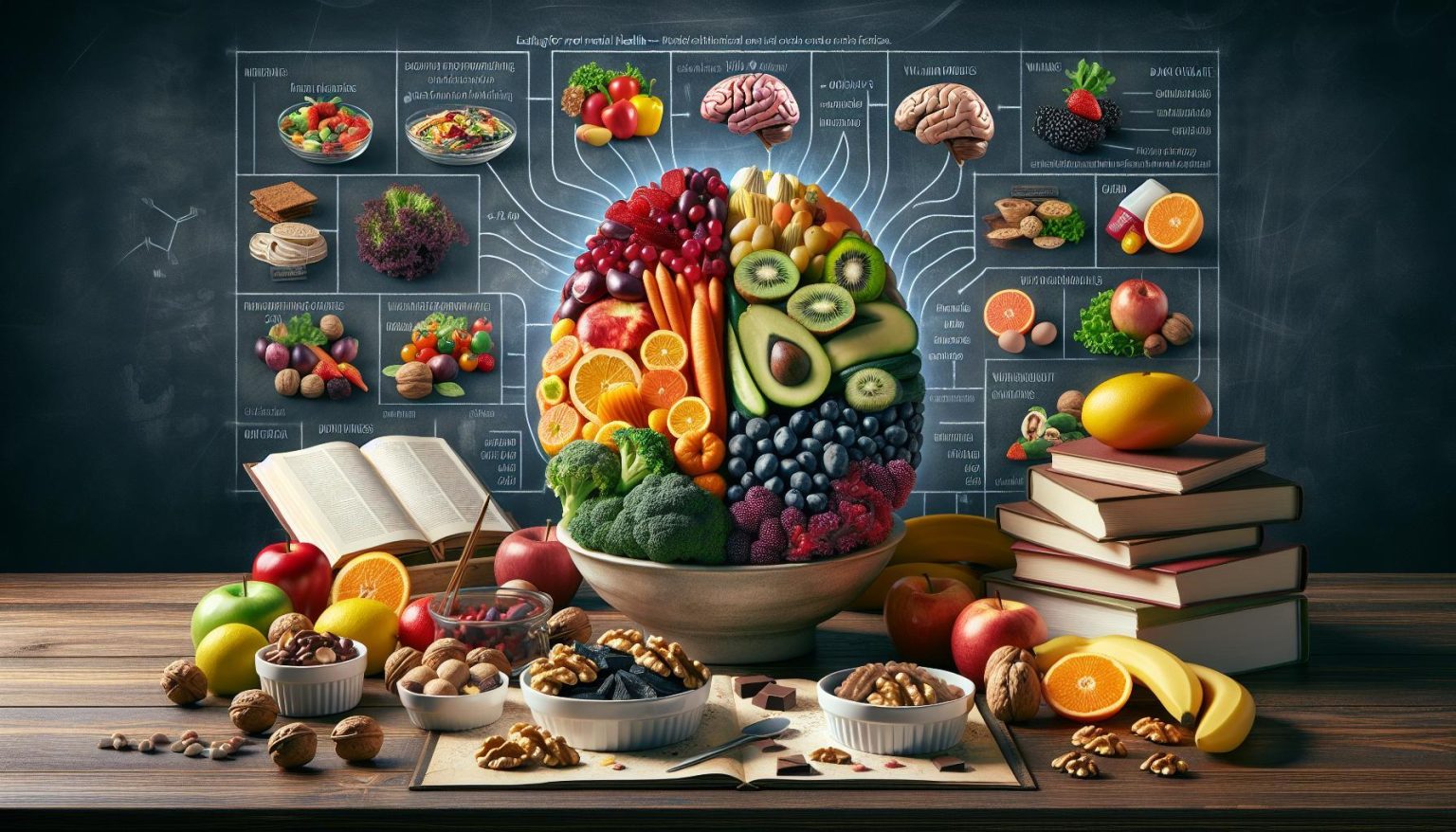Welcome to an exploration of a culinary journey that leads to radiant mental health – a comprehensive guide on “Eating for Mental Health”. This blog post is much more than a list of mood-enhancing foods; it’s a roadmap to creating sustainable lifestyle changes that can foster mental wellbeing. You’ve likely heard the saying “you are what you eat,” but have you considered the deep connection between your diet and mood? Have you ever pondered “Diet and Depression: What the Research Says” or investigated Foods That Enhance Mood and Wellbeing?
The truth is, your food choices directly impact not only your physical health but also your emotional and mental health. Even seemingly trivial dietary components, such as “The Impact of Caffeine on Anxiety,” all come into play in eating for mental health. This blog serves to inform and enlighten you on the intricate relationship between what you consume and how you think and feel. Are you ready to embark on this nutritional voyage toward enhanced mental wellbeing? Let’s dive into the delicious details.
The Science Behind Eating for Mental Health
Research consistently points to a strong link between diet and mental health. Consuming a well-rounded diet rich in variety not only offers essential nutrients for bodily functions but also wields powerful impacts on brain health.
Neuro-nutrition: Feed Your Brain
Neurons, the functional units of your brain, heavily depend on nutrients for optimal operation. You can literally eat your way to a happier and healthier brain by offering it the right “brain food”.
Importance of Neurotransmitters
Foods rich in amino acids, such as turkey and eggs, provide the building blocks for neurotransmitters like serotonin and dopamine, which are critical for mood regulation.
Antioxidants and Brain Health
Antioxidants from berries and nuts protect neurons from oxidative stress, which can reduce the risk of cognitive decline and improve overall brain function.
Power of Probiotics: The Gut-Brain Connection
Housing trillions of microbes, your gut can influence your mental health in significant ways via the gut-brain axis. Consuming probiotic-rich foods can potentially improve your mental wellbeing.
Enhancing Gut Flora
Consuming foods like yogurt and sauerkraut can increase beneficial bacteria in the gut, which play a key role in communicating with the brain.
Reducing Inflammation
Probiotics help reduce systemic inflammation, which is linked to several mental health issues including depression and anxiety.
Omega-3 Fatty Acids: Brain’s Best Friend
Omega-3 fatty acids are the necessary building blocks of our brain cells. Regular intake of omega-3 rich foods may help fight against mental disorders like depression and anxiety.
Enhancing Neural Function
Omega-3s help build and repair brain cells. Fatty fish, flaxseeds, and walnuts are excellent sources.
Regulating Neurotransmitters
These fatty acids facilitate neurotransmitter activities, enhancing mood and cognitive functions.
B Vitamins: Boost Your Mood
B vitamins play a vital role in mood regulation and mental health. Foods overflowing with these essential nutrients can help keep your mood stable and your brain happy.
Energy Production
B vitamins are crucial in the metabolism of serotonin, which can enhance mood and energy levels. Good sources include whole grains, meat, and dairy.
Neuroprotection
These vitamins help in the formation of protective shields for neurons, crucial for long-term brain health.
Avoiding Potential Mental Health Triggers in Food
Just as certain foods aid mental health, others can contribute to mental health decline. Knowing what to stay away from is just as crucial as knowing what to consume for optimal mental health.
High Sugar Impact
Excessive sugar can lead to fluctuations in mood and energy, contributing to anxiety and depression.
Food Additives and Mental Health
Certain additives and preservatives can affect brain health and mood, emphasizing the importance of a diet based on whole and unprocessed foods.
Conclusion
Eating for mental health takes a conscious and informed decision about what to consume and what to avoid. The serenity of your mental state can sometimes be just a meal away. The nutrients we offer our bodies have a profound impact on our brain health, mood regulation, and our overall sense of wellbeing.
Frequently Asked Questions – FAQs
1. Can my diet really impact my mental health?
Yes, your diet can significantly impact your mental health. Nutrients from food affect brain structure and function, influencing mood and mental clarity.
2. What foods should I eat for better mental health?
For better mental health, consume:
- Omega-3 fatty acids (from fish like salmon),
- Whole grains (for steady energy),
- Leafy greens (rich in vitamins),
- Fermented foods (which boost gut health).
3. Are there foods that can negatively affect my mental health?
Avoid or limit:
- High sugar and high-fat foods (can lead to inflammation),
- Alcohol (depletes neurotransmitters),
- Caffeine (in excess, can heighten anxiety).
4. What is the gut-brain axis and how does it influence my mood?
This is the direct biochemical signaling between the GI tract and the brain, influenced by gut bacteria. It plays a crucial role in your mood by affecting the body’s stress response and neurotransmitter levels.
5. How do probiotics benefit mental health?
Probiotics help maintain a healthy gut flora, which is essential for synthesizing neurotransmitters like serotonin, thus potentially reducing depression and anxiety symptoms.
Remember that, while the right diet can certainly boost your mental health, consulting with a healthcare professional is crucial if you are struggling with mental health issues. Now that you’ve been equipped with this knowledge, it’s time to take a step towards creating that perfect plate for your mental health. Happy Eating to Mental Health!










